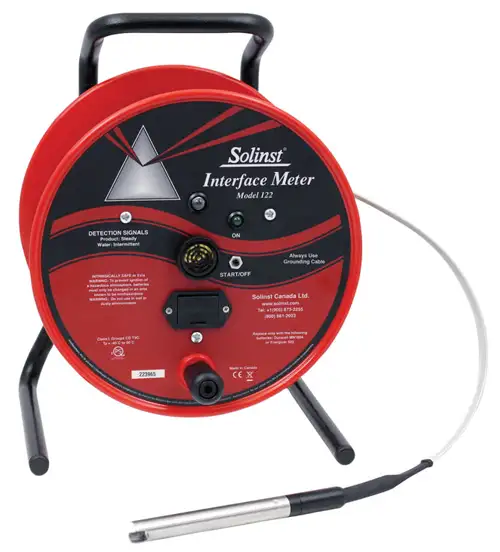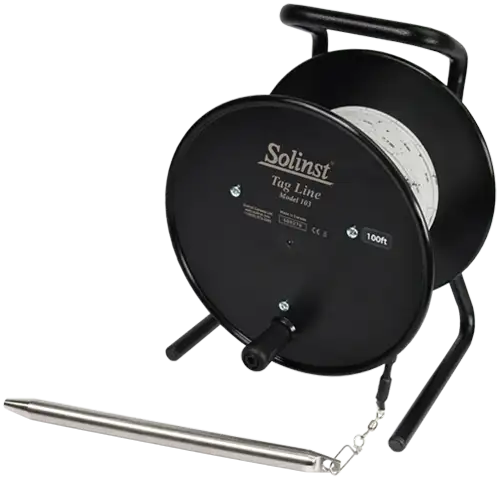Accurately Detect LNAPL and DNAPL Layers
The Solinst Model 122 Interface Meter quickly and easily detects water as well as floating or sinking product layers (LNAPL or DNAPL).
Infra-red refraction is used to detect liquids and conductivity to distinguish water. A steady light and tone indicates product. Water is indicated by intermittent signals.
Once an LNAPL or DNAPL layer is detected, a sample can be taken using a Discrete Interval Sampler at the depth indicated on the Interface Meter flat tape (marked every mm or 1/100 ft).
Materials
Standard Model 425 Discrete Interval Samplers are constructed of stainless steel with o-rings, and PTFE and polypropylene check balls. The Model 425-D is also constructed with stainless steel and o-rings, and includes a Vyon filter and Delrin plunger on the internal piston.
The 1/4" OD tubing most commonly used is low density polyethylene (LDPE), however, PTFE or PTFE-lined polyethylene tubing is also available.
Larger size reels, including Power Reels, are available for holding longer lengths of tubing.
Suspension Cable
A cable connector is included at the top of the sampler for easy connection to a suspension cable. The Solinst Model 103 Tag Line is ideal. It uses permanently laser marked PVDF coated stainless steel cable, or PVDF flat tape, mounted on a reel. It comes with a clip for easy attachment.
Depth Capability
The Standard Model 425 Discrete Interval Samplers can sample to depths of 90 m (300 ft.) below water level, regardless of total depth from surface.
The Model 425-D Deep Sampling Discrete Interval Sampler can typically sample from submerged depths up to 1000 m (3200 ft). Sampling to depths of 1200 m (4000 ft) is possible; contact Solinst to determine the suitability of your application.
VOC Sampling
Discrete Interval Samplers are excellent for VOC sampling since there is no mixing with water from different levels in the well. The sample has minimal contact with air, and does not travel through a long length of tubing, risking loss of volatile organics.





